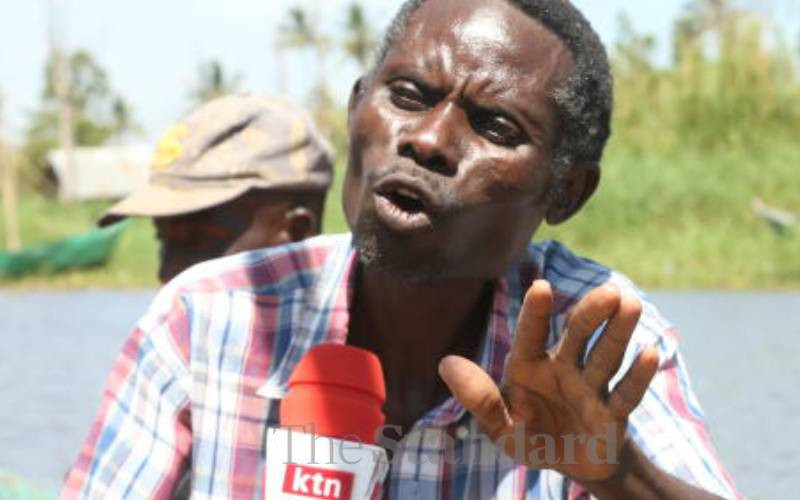×
The Standard e-Paper
Home To Bold Columnists

After hours of fishing on Lake Victoria, Emmanuel Balaga docks his boat at Musoma Beach in Budalang'i.
It had to have been a bad day for the visibly upset 45-year-old fisherman. "It was chilly and dark when I steered the vessel into the lake, but I wasn't lucky enough to catch any fish," Balaga says as he steps off the empty boat.